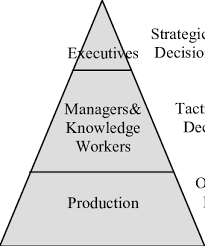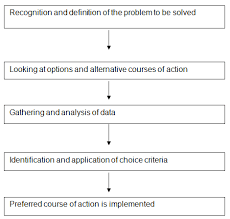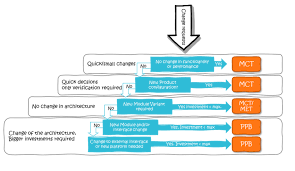Effective Decision Making in Management
In the dynamic and fast-paced world of business, effective decision making is a crucial skill for managers. The ability to make sound decisions can determine the success or failure of an organization. In this article, we will explore the key principles and strategies for effective decision making in management.
- Define the problem: The first step in effective decision making is to clearly define the problem at hand. Managers need to identify the root cause of the issue and understand its impact on the organization. By defining the problem accurately, managers can focus their efforts on finding appropriate solutions.
- Gather relevant information: In order to make informed decisions, managers must gather all relevant information related to the problem. This includes data, reports, and insights from various sources such as employees, customers, and market trends. Having a comprehensive understanding of all pertinent information allows managers to evaluate different options objectively.
- Analyze alternatives: Once all relevant information is collected, it is important to analyze different alternatives or courses of action. Managers should consider both short-term and long-term consequences of each option, as well as their feasibility and potential risks involved. This analytical approach helps in selecting the most suitable solution.
- Involve stakeholders: Effective decision making involves considering input from key stakeholders who are affected by or have expertise in the matter at hand. Engaging employees, team members, and other relevant parties not only provides diverse perspectives but also fosters a sense of ownership and commitment towards implementing decisions.
- Evaluate risks: Every decision carries inherent risks; therefore, it is essential for managers to assess potential risks associated with each option before making a final choice. Identifying possible obstacles or challenges allows for proactive planning and mitigation strategies to minimize negative impacts on the organization.
- Make timely decisions: Delaying decisions can hinder progress and create unnecessary confusion within an organization. Effective managers understand that time is a valuable resource and strive to make timely decisions. However, it is important to strike a balance between making decisions promptly and ensuring sufficient analysis and evaluation.
- Implement and monitor: Once a decision is made, it is crucial to implement it effectively. Managers should communicate the decision clearly to all relevant parties and provide necessary resources and support for its execution. Regular monitoring and evaluation of the decision’s outcomes are essential to ensure its effectiveness and make adjustments if needed.
- Learn from experience: Effective decision making involves continuous learning and improvement. Managers should reflect on the outcomes of their decisions, analyzing both successes and failures, in order to gain insights for future decision-making processes. This iterative approach helps refine decision-making skills over time.
In conclusion, effective decision making in management requires a systematic approach that involves defining the problem, gathering information, analyzing alternatives, involving stakeholders, evaluating risks, making timely decisions, implementing effectively, and learning from experience. By following these principles and strategies, managers can enhance their ability to make informed choices that drive organizational success in today’s complex business environment.
5 Essential Tips for Effective Decision Making in Management
- Make sure you have all the facts before making a decision. Gather as much relevant information as possible to ensure that your decision is based on accurate data and facts.
- Consider all stakeholders when making a decision. Think about how the decision will affect not only yourself, but also other people who may be involved or impacted by it.
- Take time to reflect and analyze different options before deciding which one is best for the situation at hand. Evaluate both short-term and long-term consequences of each option before committing to one course of action.
- Don’t be afraid to seek help from others if needed – ask for advice, input, or feedback from colleagues or mentors who may have more experience with similar decisions in the past.
- Be confident in your decisions – once you’ve made a choice, stand by it and take responsibility for any outcomes that result from it, good or bad!
Make sure you have all the facts before making a decision. Gather as much relevant information as possible to ensure that your decision is based on accurate data and facts.
Make Informed Decisions: The Power of Gathering Facts
In the realm of effective decision making in management, one crucial tip stands out: make sure you have all the facts before making a decision. In today’s fast-paced business environment, where decisions can have far-reaching consequences, relying on accurate data and facts is paramount.
Gathering relevant information is a fundamental step in the decision-making process. It allows managers to gain a comprehensive understanding of the situation at hand and make informed choices. Here’s why this tip holds immense value:
- Accuracy breeds confidence: When managers have access to accurate data and facts, they can approach decision making with confidence. Knowing that their choices are grounded in reliable information helps them navigate complex scenarios more effectively.
- Minimizing risks: Making decisions without all the facts can lead to unforeseen risks and negative outcomes. By gathering as much relevant information as possible, managers can identify potential pitfalls and mitigate risks before they escalate.
- Improved problem-solving: Having all the facts at hand enables managers to analyze alternatives more objectively. It allows for a comprehensive evaluation of different options, leading to better problem-solving and more effective decision making.
- Stakeholder engagement: Gathering facts involves seeking input from various stakeholders who possess valuable insights or expertise related to the decision-making process. Engaging employees, team members, or subject matter experts fosters collaboration and ensures that decisions reflect diverse perspectives.
- Long-term impact assessment: Accurate data and facts provide a solid foundation for assessing both short-term gains and long-term consequences of decisions. Managers can evaluate potential outcomes, weigh pros and cons, and select options that align with their organization’s goals and values.
- Enhanced credibility: Making decisions based on accurate information enhances a manager’s credibility within their organization. It demonstrates their commitment to thoroughness, objectivity, and evidence-based reasoning – qualities that inspire trust among colleagues and stakeholders alike.
To implement this tip effectively, managers should establish reliable channels for gathering information. This may involve conducting research, consulting subject matter experts, analyzing market trends, or leveraging data analytics tools. It is essential to foster a culture that values data-driven decision making and encourages open communication among team members.
In conclusion, the importance of gathering all the facts before making a decision cannot be overstated. By ensuring decisions are based on accurate data and facts, managers can make informed choices that lead to positive outcomes for their organization. So, embrace this tip as a guiding principle in your decision-making process and witness the transformative power it brings to your managerial effectiveness.
Consider all stakeholders when making a decision. Think about how the decision will affect not only yourself, but also other people who may be involved or impacted by it.
Consider All Stakeholders: A Key Tip for Effective Decision Making in Management
When it comes to effective decision making in management, one crucial tip is to consider all stakeholders involved. It’s not just about how a decision will impact yourself as a manager, but also about the potential effects on others who may be involved or impacted by it. This simple yet powerful principle can make a significant difference in the outcomes of decisions and the overall success of an organization.
Stakeholders can include employees, customers, suppliers, shareholders, and even the wider community. Each stakeholder group has its own interests, concerns, and perspectives that need to be taken into account. By considering all stakeholders, managers can ensure that decisions are fair, balanced, and aligned with the broader goals and values of the organization.
When managers consider all stakeholders before making a decision, several benefits arise. Firstly, it promotes a sense of inclusivity and transparency within the organization. Employees feel valued when their opinions are heard and considered. This fosters trust and encourages engagement and commitment towards achieving organizational objectives.
Secondly, considering all stakeholders helps identify potential risks or challenges that may arise from a decision. By understanding how different groups will be affected, managers can anticipate any resistance or negative consequences that might arise. This allows for proactive planning and mitigation strategies to address concerns or minimize adverse impacts.
Moreover, considering all stakeholders leads to better decision outcomes by incorporating diverse perspectives. Different stakeholders bring unique insights based on their expertise or experiences. By actively seeking input from these groups, managers gain valuable insights that may have otherwise been overlooked. This broader perspective enhances the quality of decisions made.
It is important for managers to create an environment where stakeholder input is encouraged and valued. This can be done through open communication channels such as regular team meetings or feedback sessions. Additionally, conducting impact assessments or seeking feedback from relevant stakeholder groups can provide valuable information for decision making.
In conclusion, considering all stakeholders when making decisions is a fundamental tip for effective decision making in management. By taking into account the interests and concerns of all those involved or impacted, managers can make well-rounded and informed decisions. This approach promotes inclusivity, transparency, risk mitigation, and the incorporation of diverse perspectives. Ultimately, it leads to better outcomes and a stronger organizational foundation built on trust and collaboration.
Take time to reflect and analyze different options before deciding which one is best for the situation at hand. Evaluate both short-term and long-term consequences of each option before committing to one course of action.
The Importance of Reflection and Analysis in Effective Decision Making
When it comes to effective decision making in management, taking the time to reflect and analyze different options is a crucial step. Rushing into decisions without careful consideration can lead to unfavorable outcomes and missed opportunities. By pausing to reflect and evaluate, managers can make more informed choices that align with their organization’s goals and values.
One key aspect of reflection is considering both short-term and long-term consequences of each option. While short-term gains may seem appealing, it is essential to assess the potential long-term impacts as well. This helps avoid decisions that may provide immediate benefits but have detrimental effects in the future. By evaluating the long-term consequences, managers can make decisions that contribute to sustainable growth and success.
Analyzing different options allows managers to weigh the pros and cons of each choice objectively. It enables them to consider various factors such as feasibility, resource allocation, potential risks, and alignment with organizational objectives. This comprehensive evaluation ensures that decisions are well-informed and strategic.
By taking the time for reflection and analysis, managers also gain clarity on the potential risks associated with each option. Identifying these risks upfront enables proactive planning and mitigation strategies. It minimizes surprises down the line and increases the likelihood of successful implementation.
Furthermore, considering multiple options before committing to one course of action fosters a sense of thoroughness and accountability within management practices. It demonstrates a commitment to making well-considered choices rather than rushing into decisions impulsively.
While reflection and analysis require time investment, they ultimately save time by preventing costly mistakes or rework caused by hasty decision making. They provide managers with a solid foundation for confident decision making that aligns with their organization’s vision.
In conclusion, taking the time to reflect and analyze different options before deciding which one is best for the situation at hand is a vital tip for effective decision making in management. Evaluating both short-term and long-term consequences, considering multiple options, and assessing potential risks contribute to informed and strategic decision making. By incorporating this practice into their decision-making process, managers can enhance their ability to make sound choices that drive organizational success.
Don’t be afraid to seek help from others if needed – ask for advice, input, or feedback from colleagues or mentors who may have more experience with similar decisions in the past.
Seeking Help: A Key Tip for Effective Decision Making in Management
In the realm of management, decision making is often seen as a solitary task. However, one of the most valuable tips for effective decision making is to not be afraid to seek help from others when needed. Asking for advice, input, or feedback from colleagues or mentors who have more experience with similar decisions can greatly enhance the quality and outcome of your decisions.
No matter how experienced or knowledgeable we are, there will always be situations where seeking guidance and support from others can provide fresh perspectives and insights. Here are a few reasons why reaching out for help is crucial in effective decision making:
- Tap into collective wisdom: Every individual brings their own unique experiences and expertise to the table. By seeking help from others, you can tap into their collective wisdom and benefit from their diverse viewpoints. They may have encountered similar challenges in the past and can offer valuable insights that you might not have considered on your own.
- Gain alternative perspectives: When faced with complex decisions, it’s easy to get stuck in our own thought patterns or biases. Seeking help allows us to gain alternative perspectives that challenge our assumptions and broaden our thinking. This can lead to more innovative solutions and better-informed choices.
- Mitigate blind spots: We all have blind spots – areas where our knowledge or experience may be limited. By seeking help from others who possess different skills or expertise, we can identify potential blind spots and fill those gaps in our understanding. This helps us make more well-rounded decisions that take into account a wider range of factors.
- Build relationships and foster collaboration: Asking for help demonstrates humility and a willingness to collaborate with others. It strengthens relationships within your professional network by showing that you value their input and expertise. Additionally, seeking help creates opportunities for reciprocal assistance in the future, fostering a culture of collaboration within your organization.
However, it’s important to approach seeking help strategically. Here are a few tips to make the most of this practice:
– Be clear about what you need: Before reaching out, take the time to clearly define the specific area or aspect of your decision-making process where you require assistance. This will help others understand how they can best support you.
– Choose the right people: Identify colleagues or mentors who have relevant knowledge or experience in the particular decision you are facing. Seek out individuals who can provide valuable insights and guidance based on their expertise.
– Be open and receptive: When seeking help, be open-minded and receptive to different perspectives. Listen actively, ask probing questions, and consider all feedback thoughtfully. Remember that seeking help is not about blindly following someone else’s advice but using it as a tool to inform your decision-making process.
In conclusion, don’t hesitate to seek help from others when making important decisions in management. By reaching out for advice, input, or feedback, you can tap into collective wisdom, gain alternative perspectives, mitigate blind spots, and foster collaboration. Embracing this tip will enhance your decision-making abilities and lead to more successful outcomes for both yourself and your organization.
Be confident in your decisions – once you’ve made a choice, stand by it and take responsibility for any outcomes that result from it, good or bad!
Be Confident in Your Decisions: Taking Ownership of the Outcome
In the realm of effective decision making in management, one crucial tip stands out: be confident in your decisions. Once you have carefully assessed the situation, analyzed the alternatives, and considered the input of stakeholders, it is imperative to stand by your choice and take responsibility for its outcomes, whether they turn out to be favorable or not.
Confidence in decision making is about having faith in your abilities as a manager and leader. It is a mindset that allows you to trust your judgment and make decisions without second-guessing yourself constantly. When you are confident in your choices, you convey a sense of conviction and inspire others to trust your leadership.
However, confidence should not be mistaken for stubbornness or an unwillingness to adapt. It means being open-minded and receptive to feedback and new information while remaining steadfast in your decision once it has been made. This flexibility allows for course corrections if necessary while still maintaining accountability for the initial choice.
Taking ownership of the outcomes is an essential aspect of being confident in decision making. When you embrace responsibility for both positive and negative results, it demonstrates integrity and leadership qualities. By acknowledging the consequences that arise from your decisions, you create an environment where learning from mistakes becomes possible.
Being confident in decision making also instills confidence in others within the organization. When team members witness a manager who takes ownership of their choices, it fosters trust and encourages them to take risks themselves. This empowerment can lead to increased engagement, innovation, and a more collaborative work environment.
It’s important to remember that no decision is foolproof; there will always be uncertainties and unforeseen challenges along the way. However, by being confident in your decisions and accepting responsibility for their outcomes, you demonstrate resilience as a leader.
In conclusion, being confident in decision making means standing by your choices once they have been made while remaining open to feedback and adaptation. Taking ownership of the outcomes, whether positive or negative, shows integrity and inspires trust within the organization. By embodying this approach, managers can foster a culture of accountability and empower their teams to make bold decisions.




